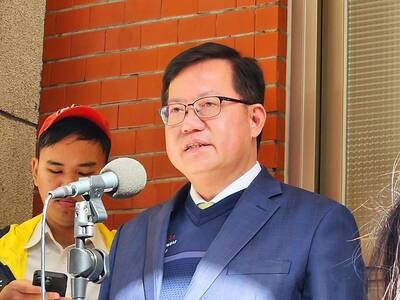The Taiwan European Film Festival (歐洲魅影影展) is a great opportunity for filmgoers to catch up with what is happening with the increasingly diverse range of films now being offered by Europe. Residents of Taipei are no strangers to European films, with a number of cinemas dedicated to screening films from around the world, but outside the capital, the opportunities to view films other than local or Hollywood productions are limited.
The Taiwan European Film Festival got started in 2005, and is sponsored by the European Economic and Trade Office (歐洲經濟貿易辦事處). From small beginnings, and with the rapid penetration of digital technology, the festival has grown quickly, and this year will feature screenings at 26 venues located in 12 cities across Taiwan. According to Infine Art and Culture Exchange (上苑文化藝術有限公司), the organizer, the prejudice against European films as exclusively hard-to-fathom art house works is gradually breaking down, due both to increased exposure and the embracing of more commercial and mainstream ideas in the film industries of European countries. As a result, the festival has become an ideal medium to facilitate a greater understanding of Europe by Taiwanese.
Most of the screenings take place in university auditoriums around the country. Films will be screened at six venues in Taipei, and also in Taoyuan, Hsinchu, Taichung, Tainan, Yunlin, Kaohsiung, Yilan, Hualien and Taitung until Dec. 10. Full screening information and location of venues is available at the festival Web site: teff.pixnet.net. All screenings are free.

Photo courtesy of Infine

Last week, Viola Zhou published a marvelous deep dive into the culture clash between Taiwanese boss mentality and American labor practices at the Taiwan Semiconductor (TSMC) plant in Arizona in Rest of World. “The American engineers complained of rigid, counterproductive hierarchies at the company,” while the Taiwanese said American workers aren’t dedicated. The article is a delight, but what it is depicting is the clash between a work culture that offers employee autonomy and at least nods at work-life balance, and one that runs on hierarchical discipline enforced by chickenshit. And it runs on chickenshit because chickenshit is a cultural

By far the most jarring of the new appointments for the incoming administration is that of Tseng Wen-tsan (鄭文燦) to head the Straits Exchange Foundation (SEF). That is a huge demotion for one of the most powerful figures in the Democratic Progressive Party (DPP). Tseng has one of the most impressive resumes in the party. He was very active during the Wild Lily Movement and his generation is now the one taking power. He has served in many of the requisite government, party and elected positions to build out a solid political profile. Elected as mayor of Taoyuan as part of the

Moritz Mieg, 22, lay face down in the rubble, the ground shaking violently beneath him. Boulders crashed down around him, some stones hitting his back. “I just hoped that it would be one big hit and over, because I did not want to be hit nearly to death and then have to slowly die,” the student from Germany tells Taipei Times. MORNING WALK Early on April 3, Mieg set out on a scenic hike through Taroko Gorge in Hualien County (花蓮). It was a fine day for it. Little did he know that the complex intersection of tectonic plates Taiwan sits

When picturing Tainan, what typically comes to mind is charming alleyways, Japanese architecture and world-class cuisine. But look beyond the fray, through stained glass windows and sliding bookcases, and there exists a thriving speakeasy subculture, where innovative mixologists ply their trade, serving exquisite concoctions and unique flavor profiles to rival any city in Taiwan. Speakeasies hail from the prohibition era of 1920s America. When alcohol was outlawed, people took their business to hidden establishments; requiring patrons to use hushed tones — speak easy — to conceal their illegal activities. Nowadays legal, speakeasy bars are simply hidden bars, often found behind bookcases